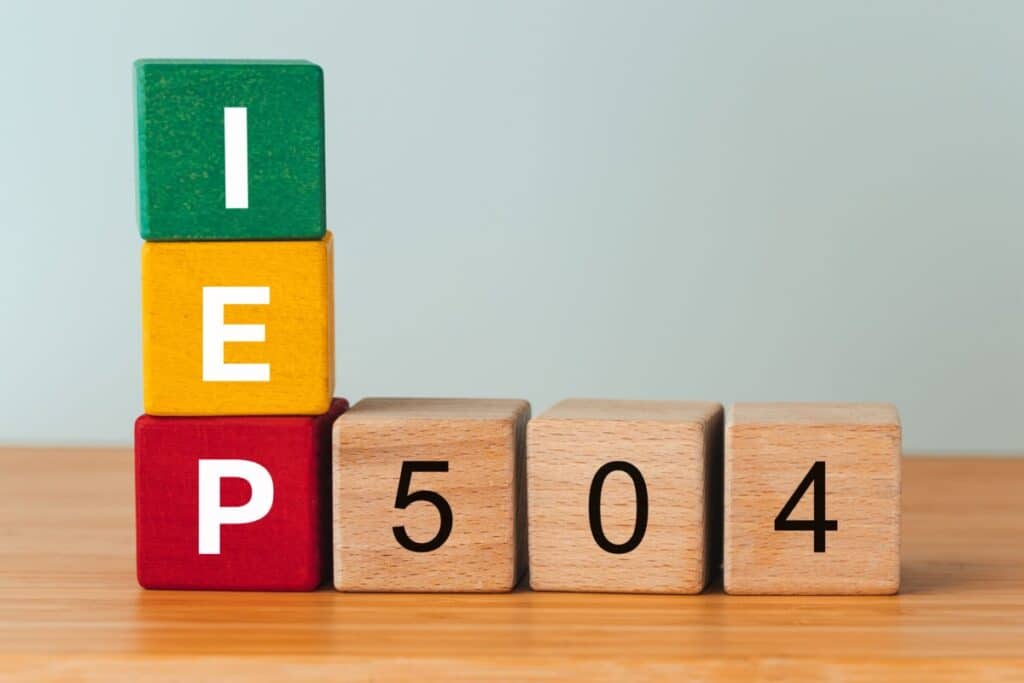Both IEPs and 504s exist to serve students with special needs. In a nutshell, one is a legal document detailing the classification and instructional goals and services, while the other simply provides a handful of modifications to the learning environment but not a special education program, curriculum, or service.
What is a 504 Plan vs IEP: Detailed Comparison
Let’s explore how the two differ and which might apply to your child.
IEPs are a robust, detailed plan of a child’s functioning and how to help them learn. It includes data from evaluations and history, as well as recommendations for class size, placement, speech or occupational therapy services, as well as self-contained classrooms. IEPs require a classification of a disability, quantifiable goals, and how to measure progress. A student must satisfy the specific IDEA criteria for an IEP, which can be corroborated or advocated for by outside health professionals, such as neuropsychologists, developmental pediatricians, or psychiatrists. A student must have one of the 13 disabilities outlined by federal law. Students with IEPs receive services that are funded by the resources allocated by the city and state, or a township.
504s are designed to provide students with difficulties that do not qualify them for an IEP. A 504 plan removes impediments to the general learning curriculum by providing extra time, sitting close to the teacher (preferential seating), and movement breaks. A child who has a bladder control problem may have a 504 that allows them to visit the bathroom without permission and often. Another student with a hearing aid might have the use of a device or technology but not need special education services.
IEP vs 504: How Neuropsych Testing Determines the Right Path
A neuropsychological evaluation is designed to dig deep. At school, the psychoeducational evaluations simply do not provide the extent of data to make a well-informed decision. Further, schools cannot diagnose, and hence, cannot diagnose your child with Dyslexia. ADHD is termed or classified as ‘other health impairment.’ Hence, a neuropsychological assessment can explore subtle but critical deficits that require specialized instruction. In the case where a diagnosis cannot be made or will not qualify for an IEP, a 504 plan can advocate for extra time, a separate location, or assistive technology to make learning easier, albeit in a mainstream setting.
Using Your Neuropsych Report to Advocate for Your Child
A neuropsychological evaluation can make the case for an IEP and a 504 plan. A good neuropsychologist or a clinical team can help you reach that decision together. At Comprehend the Mind, the group works through the assessment to determine what the best course of action is and guides the family through it. From non-public school placements to the Orton-Gillingham approach, Dr. Hafeez and her team are your best asset in obtaining services. A 504, when applicable, can be completed by our doctors for extra time, movement breaks, use of a calculator, etc.
Please get started with us to learn more about how Comprehend the Mind can assist you.

